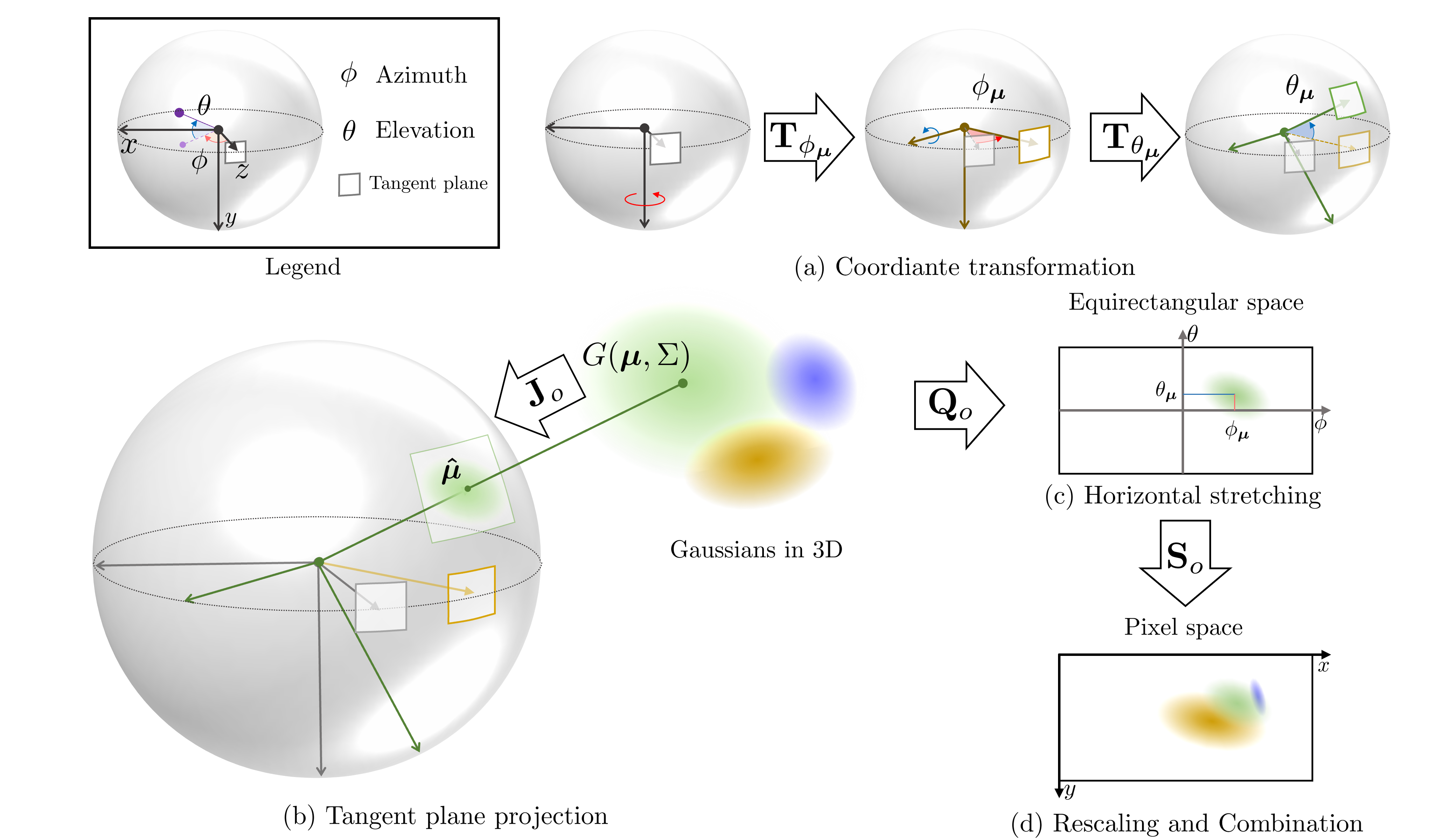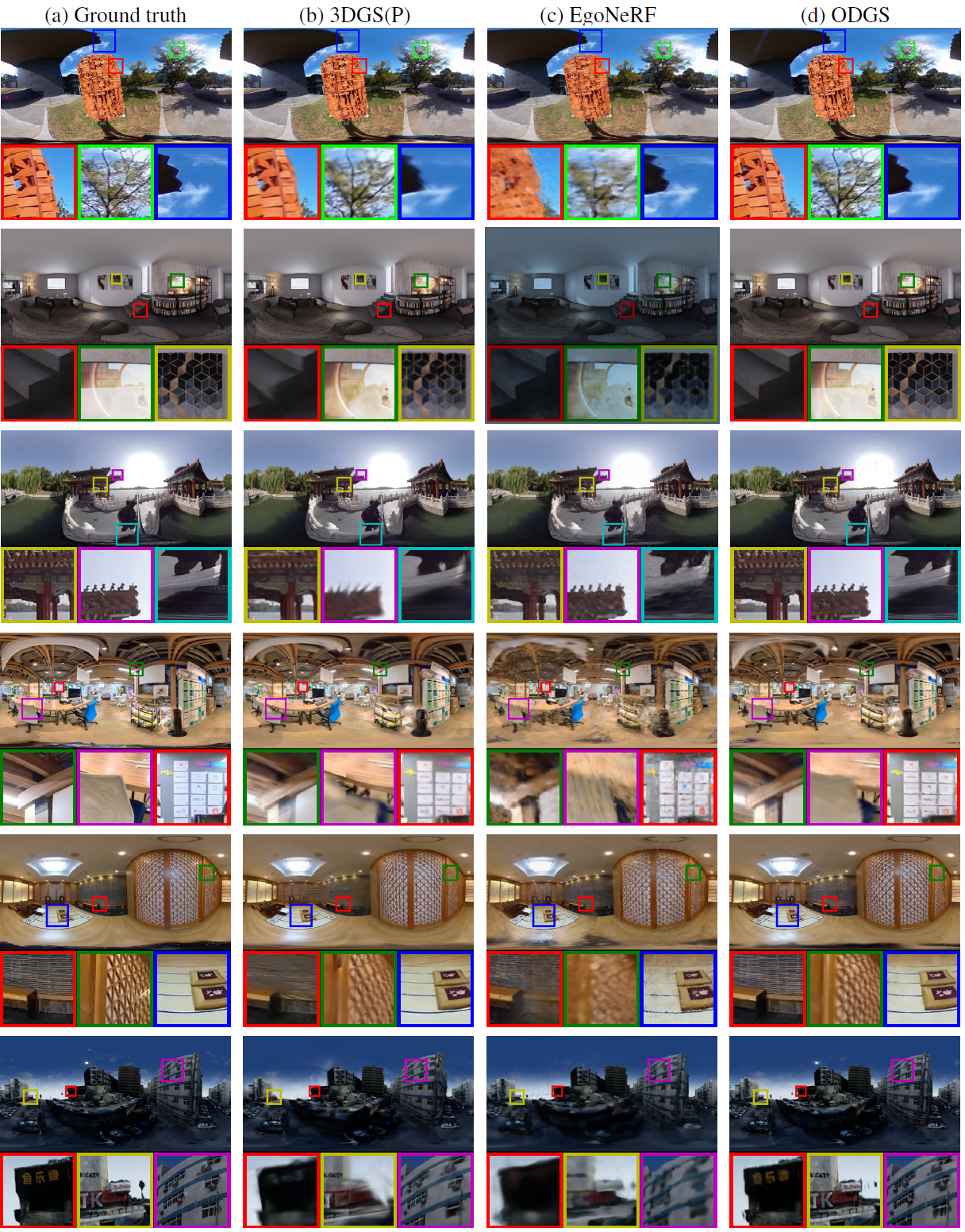Suyoung Lee*
·
Jaeyoung Chung*
·
Jaeyoo Huh
·
Kyoung Mu Lee
(* denotes equal contribution)
This is an official implementation of "ODGS: 3D Scene Reconstruction from Omnidirectional Images with 3D Gaussian Splatting."
24.12.08: First upload (CUDA rasterizer and training code)
24.12.26: Update project page and video hyperlink
git clone https://github.com/esw0116/ODGS.git --recursive
cd ODGS
# Set Environment
conda env create --file environment.yml
conda activate ODGS
pip install submodules/simple-knn
pip install submodules/odgs-gaussian-rasterizationWe evaluate 6 datasets by adjusting their resolutions and performing Structure-from-Motion using OpenMVG.
For your convenience, we provide ⭐links to the adjusted datasets⭐ used in our paper.
Note: The authors of 360Roam dataset do not want to distribute thier datasets yet (8 Dec. 2024), so we will not provide here. If you need, please contact them.
For reference, we provide the links to the original datasets here.
OmniBlender & Ricoh360 / OmniPhotos / 360Roam / OmniScenes / 360VO
ODGS requires optimization for each scene. Run the script below to start optimization:
python train.py -s <source(dataset)_path> -m <output_path> --eval@article{lee2024odgs,
title={ODGS: 3D Scene Reconstruction from Omnidirectional Images with 3D Gaussian Splattings},
author={Lee, Suyoung and Chung, Jaeyoung and Huh, Jaeyoo and Lee, Kyoung Mu},
journal={Advances in Neural Information Processing Systems (NeurIPS)},
volume={37},
year={2024}
}




